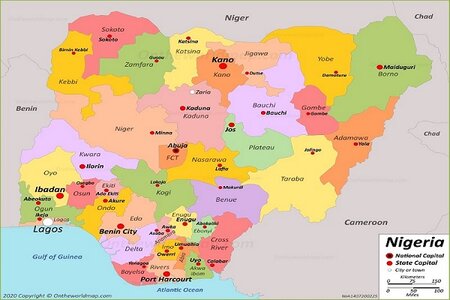Nasarawa State is located in the North-Central geopolitical zone of Nigeria with the slogan: “Home of Solid Minerals”. The State was established on the 1st of October 1996 and its capital is Lafia.
The current governor of Nasarawa State is Umaru Tanko Al-Makura, while his deputy is Silas Ali Agara.
As at 2006, there are about 2 million people living in Nasarawa State (according to the 2006 national census)
History
The State was established on the first day of October in 1996 during the regime of Late Sani Abacha. It was carved out of Plateau State to become an independent State of it own)
Geography
She is neighbour to Kaduna State (to the north), the Abuja Federal Capital Territory (to the west), Kogi and the Benue States (to the south) and Taraba and Plateau States (to the east)
There is still a network of roads within Nasarawa that links all rural areas and major towns. The Nigerian Railway Corporation (NRC) runs train services from Kuru, Gombe and Maiduguri.
Apart from having three National Senatorial Districts (South, North and West), there are also 13 local government areas in the State.
Economy
There are numerous people in the State who are farmers, and they cultivate various crops (especially cash crops) throughout the year.
Apart from agriculture which keeps contributing immensely to its economy, Nasarawa State also has various minerals such as salt, baryte, and bauxite.
Education
There are various educational institutions in Nasarawa State. Some of them are:
- Federal Polytechnic Nasarawa,
- College of Agriculture in Lafia,
- Nasarawa State Polytechnic in Lafia,
- Nasarawa State University in Keffi.
Tourism
Tourists can explore various exciting places in Nasarawa State such as the Farin Ruwa Falls in Wamba Local Government Area of Nasarawa. Farin Ruwa falls has a reputation for being one of the highest falls in Africa.
Also, in Keana Local Government Area of Nasarawa, there is a Salt Village that produces naturally iodized salt from the lake close to it.


